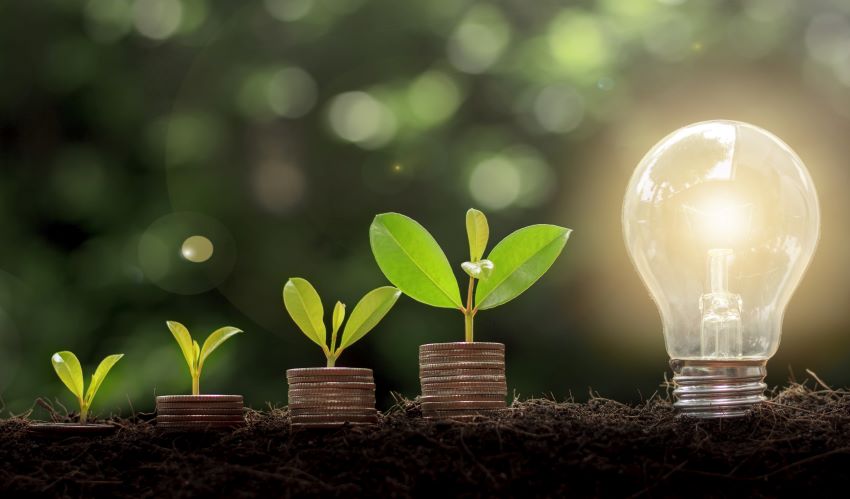
As oil prices rapidly increase across the globe, Barbadians are being encouraged to practise energy conservation in their homes and businesses. And, Chief Energy Conservation Officer in the Ministry of Energy and Business Development, William Hinds, said if householders, as well as the private and public sectors reduced their energy wastage and better plan their energy use, they could significantly reduce the impact of the rising prices of petroleum products worldwide.
Energy conservation “is the prevention of the wasteful use of energy, especially in order to ensure its continuing availability”.
In an interview with the Barbados Government Information Service (BGIS), Mr. Hinds underscored the importance of employing energy saving measures, saying they would, among other things, help save money, and reduce the impact of climate change on the country.
He encouraged families to appoint an energy champion from the household to look out for any accidental energy wastage. “In our busy daily life, we don’t all have the time to monitor home energy use, but action needs to be taken to save money.
“It may be easier to give someone in the household the responsibility of looking at the energy bill monthly, and monitoring the use of energy on a daily basis, that is, reminding others to turn off the lights. This role can be rotated weekly and be a fun family activity. Parents can encourage the children and vice versa, and they can even discuss their best energy saving ideas,” he explained.
Mr. Hinds urged householders to use energy saving lights – Fluorescent or LED, pointing out that they could reduce lighting costs by more than 50 per cent, compared to an incandescent bulb. He added that homeowners should buy solar lights, when possible, for outdoor and indoor use.
“In addition, homeowners should install motion detection light switches to turn lights off when not in use. They are encouraged to have two levels of lighting for rooms – one for reading, and a reduced level for mood and energy savings. Plug-in low wattage night lights are recommended when the family is sleeping rather than leaving the larger lights on during the night,” he shared.

During the wide-ranging interview, he underscored the importance of solar water heaters and encouraged Barbadians to install them in their homes, saying they saved energy and the planet from the harmful effects of greenhouse gases.
Barbados is already a global leader in the solar water heater industry having started in the 1970s. He also stated that solar PV systems were a great energy saver and investment.
Mr. Hinds indicated that families should seek to conserve water, and suggested that tap aerators be installed in the kitchen and showers. He explained that while the pressure of the water produced remains the same, when using the aerator there would be a reduction in the volume used.
“If you suspect a leak but do not see one, read the water meter just before everyone goes to bed and first thing in the morning. Some toilet cisterns have water leaks which are unnoticed; therefore, householders must listen for any noise of running water when the toilet is not in use.
“Householders can also use dual flush toilets, which give different amounts of water, or they can convert their toilet to low flush by placing a plastic bottle filled with water in the tank (cistern). This will reduce the amount of water used per flush,” he explained.
With regard to refrigerators, the Chief Energy Conservation Officer noted that those with broken or separated gaskets allow heat to enter, thus increasing energy use. He suggested that when replacing a fridge, one with an inverter compressor should be purchased.
Mr. Hinds advised that keeping food frozen for several months might lead to extra energy costs, which could amount to be more than the value of the food being stored. “Sometimes a chest freezer may save a householder repeat visits to the shop, but result in the doubling of the cost of the food stored,” he shared.
And, as motorists across the world continue to cry out because of the high gas prices, Mr. Hinds outlined a number of actions that could be taken to address the situation. He suggested that drivers should run several errands in a single outing rather than going on several trips.
“Purchase items from nearby suppliers. The dollars you save at a supplier further away may be lost in the fuel you spend to get to that far away shop or supplier. Rapid acceleration and deceleration use extra fuel, so people should not drive fast, and they need to avoid traffic by making their journey before, or after the traffic has subsided.

“In addition, drivers should service their car at recommended times, as worn spark plugs, air filters, etcetera, increase energy wastage. Persons should also check their tyre pressure, and monitor their weekly mileage by keeping a small note book in the car to record information. They should aim to reduce the weekly mileage by five, 10, or even 20 per cent,” he stated.
The Chief Energy Conservation Officer added that persons replacing their car should consider purchasing hybrid and electric vehicles since they were major energy savers.
He reminded that following this year’s Budgetary Proposals and Financial Statement that duties were reduced on a number of energy efficient vehicles. In addition, he suggested that persons could buy a vehicle with a smaller engine as the reduction in energy use would result in financial savings.
He pointed out that some vehicles are fitted with fuel consumption meters which reveal how fuel efficient trips are, that is, litres of petrol per 100 kilometres.
He urged those with such a meter to learn how to use it, so they can monitor the fuel efficiency and try to improve it.
As consumers, we have no control over the increasing costs, including oil prices, but we can direct how much we spend by introducing energy conservation methods in our households. Let’s do it now! Remember – energy savings = $ savings.
